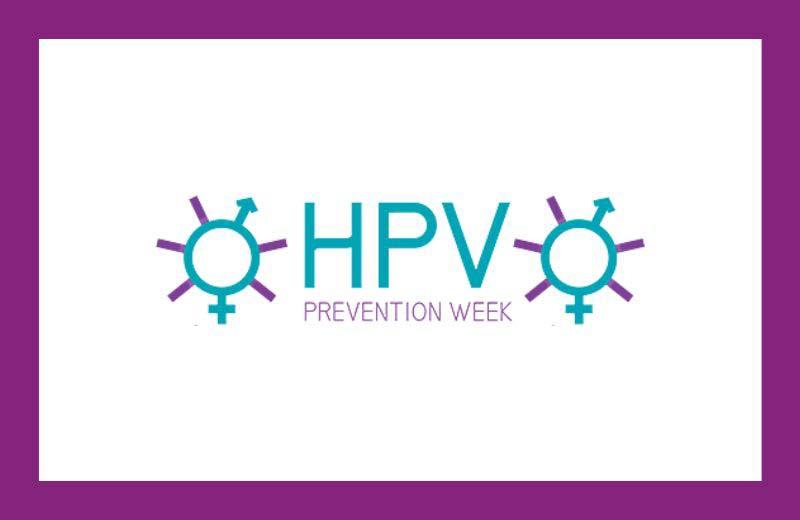What is HPV?
You might be surprised to know that Human Papilloma Virus (HPV) is one of the most common sexually transmitted infections (STIs) out there. It can be transmitted between partners through any kind of sexual activity, (including oral, genital, or anal contact), and the more sexual partners you have, the higher the risk of infection. What’s more surprising, is that many people infected with HPV don’t show signs or symptoms of the condition, so don’t even know they have it! It’s important to immunize against HPV to keep ourselves and our partners safe.
For many people, HPV clears up on its own, but for some, HPV does not go away and the HPV-infected cells can become cancerous or pre-cancerous. According to the Centre for Disease Control (CDC), HPV is responsible for almost all cases of cervical cancers, 90% of anal cancers, 70% of vaginal and vulvar cancers, 60% of penile cancers, 60-70% of mouth and throat cancers, and over 90% of genital warts.
Every year in BC approximately:
- 200 women will get cervical cancer and 50 will die from the disease
- 6,000 women will develop high risk changes to the cervix which are precancerous
- Over 450,000 women will undergo Pap tests and over 14,000 will need further follow-up. Follow-up may include more Pap tests and other procedures to stop cancer of the cervix from developing
- 110 people will get anal cancer and 20 will die from the disease
- 5,500 people will develop genital warts (Human Papillomavirus (HPV) Vaccines | HealthLink BC)
Three out of four sexually active people will get HPV at some point in their lives. Luckily, immunization is simple and easy to access. There are two HPV vaccines available in Canada, Cervarix (HPV2) and Gardasil (HPV9), and the HPV9 vaccine is approved for use for both men and women. Both vaccines immunize against two types of HPV that cause about 70% of cervical cancer and 80% of anal cancer, and the HPV9 vaccine protects against five additional types of cancer-causing HPV and genital wart-causing HPV. (HPV (Human Papillomavirus) | Immunize BC)
Who can get the HPV vaccine?
Anyone who can, should get an HPV vaccine. The HPV9 vaccine is available for free to all students in grade 6 in BC. Those who do not get their HPV vaccine in grade 6 will remain eligible to receive it for free, as long as they start their vaccine series before their 19th birthday and complete it before their 26th.
The HPV9 vaccine is also free for those between the ages of 9 and 26 who are HIV positive, transgender, questioning their sexual orientation, males who have sex with males, those who are street-involved, and those aged 9 to 18 years in the care of the Ministry of Children and Family Development, or who are in youth custody services centres.
The HPV9 vaccine is recommended (but not free) for women 19-45 years of age, boys and men 9 to 26 years of age, and men 27 years of age and older who have sex with men.
How to get immunized
Contact your health care provider to talk about HPV or to arrange a vaccination. The HPV vaccines are given as a series of either two or three doses over a six month period. Youth can start a series when they are 9 to 14 years of age. They will need two doses given at least six months apart. Those who start a series when they are 15 years of age or older and those with a weakened immune system will need three doses.
If you are not eligible for free HPV vaccine, you can buy it at most pharmacies and travel clinics. Talk to your pharmacist about the options available for you.
Remember, getting immunized for HPV is best before becoming sexually active, but don’t hesitate to ask about it and get vaccinated even if you are sexually active.
Want to learn more?
- Read the HealthLinkBC File: HPV Vaccines.
- Visit the frequently asked questions about HPV vaccines page.
- Speak to your health care provider.
- HPV (Human Papillomavirus) | Immunize BC
- Human Papillomavirus (HPV) Vaccines | HealthLink BC
- HPV Prevention Week – Canadian Cancer Survivor Network
- Pilot projects aim to find appropriate cervical screening process in BC | Stories (northernhealth.ca)
- Protect your child from cancer with the HPV vaccine
- Cancer wont wait - help prevent HPV and Cervical Cancer now














Comments